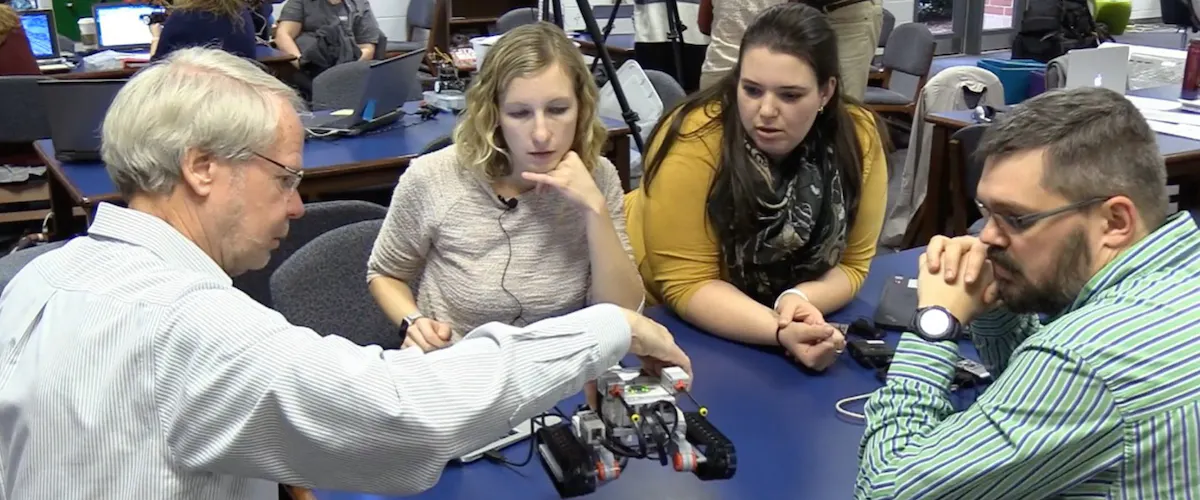This fall, students and teachers at two Jackson County elementary schools will have the tools to develop computer science skills thanks to support from a $100,000 grant from Google through nonprofit partner the Tides Foundation.
Funding will go toward procuring robots and software for classrooms and providing professional development for teachers at Maysville and South Jackson elementary schools. Faculty and graduate assistants from the University of Georgia’s Mary Frances Early College of Education will introduce the technology and lessons that will meet the computer science learning needs of teachers and their students.
“At Google, we believe in the power of technology to transform education and create opportunities for all students. We are proud to support this innovative initiative in Jackson County with researchers from the University of Georgia through a $100,000 grant from Google,” said Lilyn Hester, head of external affairs and government relations at Google. “We look forward to seeing the positive impact this project will have on the lives of young learners in rural communities.”
The project will build upon 15 years of work between the College of Education and Jackson County Schools to incorporate science, technology, engineering and mathematics (STEM) skills and curricula at various grade levels. Prior projects targeted third through fifth graders in the district; now, early learners in kindergarten through second grade will be introduced to these recently embedded skills in the Georgia Standards of Excellence.
“Jackson County Schools is thrilled to extend its partnership with the University of Georgia to further the integration of coding and robotics within science and math,” said Amity Hardegree, assistant superintendent of teaching and learning at Jackson County Schools. “We recognize the broad applicability of computational thinking and engineering skills beyond coding and robotics and the ways in which they support critical thinking and problem-solving across all academic areas. Supporting the work of our early elementary teachers to integrate these skills within science and math is critical to building a foundation for our continued work with the university to build on these areas in our upper grades.”
According to research by faculty in the college, students often determine they are not good at math or science by middle school.
“Looking at where that confidence in STEM subjects occurs, and how a person gets to a decision point on their interests by the seventh grade, the obvious answer is elementary school,” said Roger Hill, head of the Department of Mathematics, Science, and Social Studies Education and professor in the Department of Workforce Education and Instructional Technology. “We focus on elementary school for that reason, to try to make some systemic changes that will provide strong, rich learning opportunities in science, technology, engineering and mathematics in those grades.”
Providing all students with the opportunity to build computer science skills early in their academic careers could encourage them to continue taking STEM courses throughout their schooling. It also enables teachers to enhance their lessons with STEM concepts as well as incorporate these skills into other content areas, such as English and social studies.
“We are grateful to Google and the Tides Foundation for enabling us to expand our long-standing partnership with Jackson County Schools to enhance STEM education for their youngest learners,” said Denise Spangler, dean of the UGA Mary Frances Early College of Education. “This project provides a wonderful opportunity for teachers to gain experience with new tools and curriculum materials to support young children in developing their skills, knowledge and self-confidence in STEM areas, which will hopefully lead to persistence in these subjects.”
